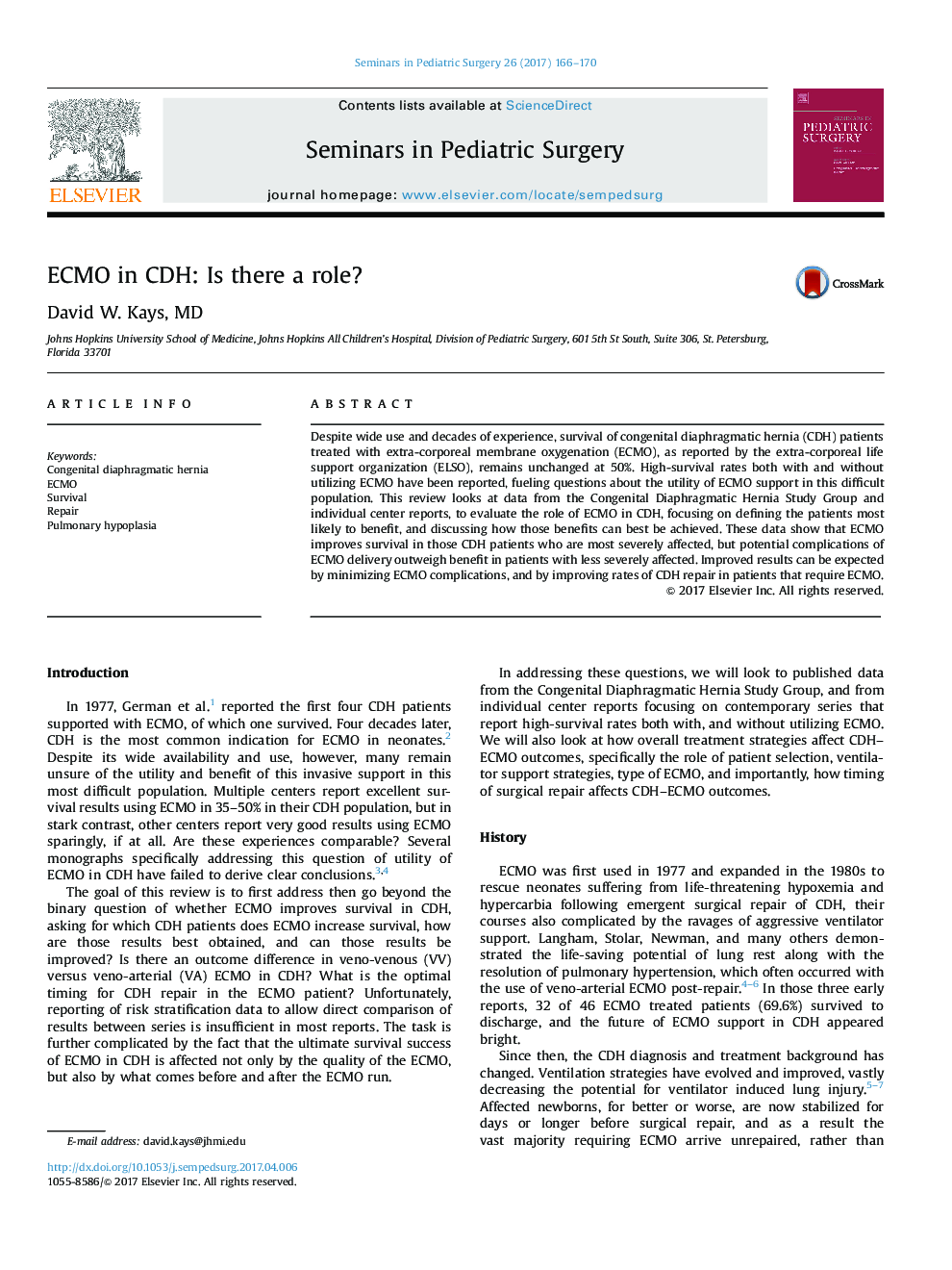| Article ID | Journal | Published Year | Pages | File Type |
|---|---|---|---|---|
| 5720349 | Seminars in Pediatric Surgery | 2017 | 5 Pages |
Despite wide use and decades of experience, survival of congenital diaphragmatic hernia (CDH) patients treated with extra-corporeal membrane oxygenation (ECMO), as reported by the extra-corporeal life support organization (ELSO), remains unchanged at 50%. High-survival rates both with and without utilizing ECMO have been reported, fueling questions about the utility of ECMO support in this difficult population. This review looks at data from the Congenital Diaphragmatic Hernia Study Group and individual center reports, to evaluate the role of ECMO in CDH, focusing on defining the patients most likely to benefit, and discussing how those benefits can best be achieved. These data show that ECMO improves survival in those CDH patients who are most severely affected, but potential complications of ECMO delivery outweigh benefit in patients with less severely affected. Improved results can be expected by minimizing ECMO complications, and by improving rates of CDH repair in patients that require ECMO.
